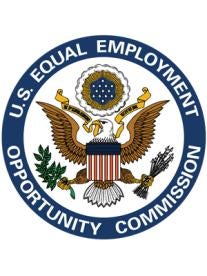Throughout the current public health emergency, the U.S. Equal Employment Opportunity Commission (EEOC) has been providing regular updates to its guidance on COVID-19 and compliance with the Americans with Disabilities Act (ADA) and other federal employment statutes (see our prior posts here). On June 11, 2020, the EEOC provided answers to approximately 10 new questions, most addressing COVID-19 return-to-work issues. Among those, several have broad application to nearly every private sector employer.
-
The EEOC clarified that although the ADA forbids discrimination against employees who are associated with persons with disabilities, the law does not require that employers provide an accommodation to a non-disabled employee based on the disability-related needs of a family member or other person with whom the employee is associated. This suggests therefore, for example, that an employer need not accommodate a non-disabled employee who requests to work from home because he or she lives with someone who is at a greater risk of severe illness from COVID-19 due to an underlying medical condition (but the employer can do so if it so chooses).
-
Some employers have implemented medical testing, such as taking of temperatures and required completion of medical questionnaires, prior to permitting employees to enter the workplace. What if an employee asks for a different screening method, either due to a medical condition or religious considerations? The EEOC guidance explains that such a request should be treated as a request for a reasonable accommodation, which should be provided so long as it is not unduly burdensome. Employers in these situations essentially should handle the request as they would any other accommodation request made under the ADA.
-
We know that persons age 65 and over are at a higher risk of serious medical issues if they contract COVID-19. Therefore, it is not inconceivable that employees in this demographic may request certain flexibilities regarding a return to work, i.e., continued teleworking, change in start/end times, relocation of work area, etc. The EEOC guidance explains that unlike the ADA, the Age Discrimination in Employment Act, which prohibits discrimination in employment against persons age 40 and over, does not include a right to accommodations based solely on an employee’s age. Although an employer can provide greater flexibility to older workers if it chooses to do so, the EEOC’s guidance clarifies that no accommodation is required based solely on age for an otherwise healthy, non-disabled worker who is age 65 or over.
-
As we also know, the pandemic has caused schools, day care centers, and summer camps to close, resulting in employees facing child care requirements that may preventing or limit them from coming to the workplace. The EEOC guidance cautions employers not to treat employees confronting these issues differently on the basis of sex, explaining that an employer cannot give female employees more favorable treatment than male employees due to a gender-based assumption about who may have greater child care responsibilities.
We will continue to provide updates as the EEOC issues additional guidance.




 i
i


